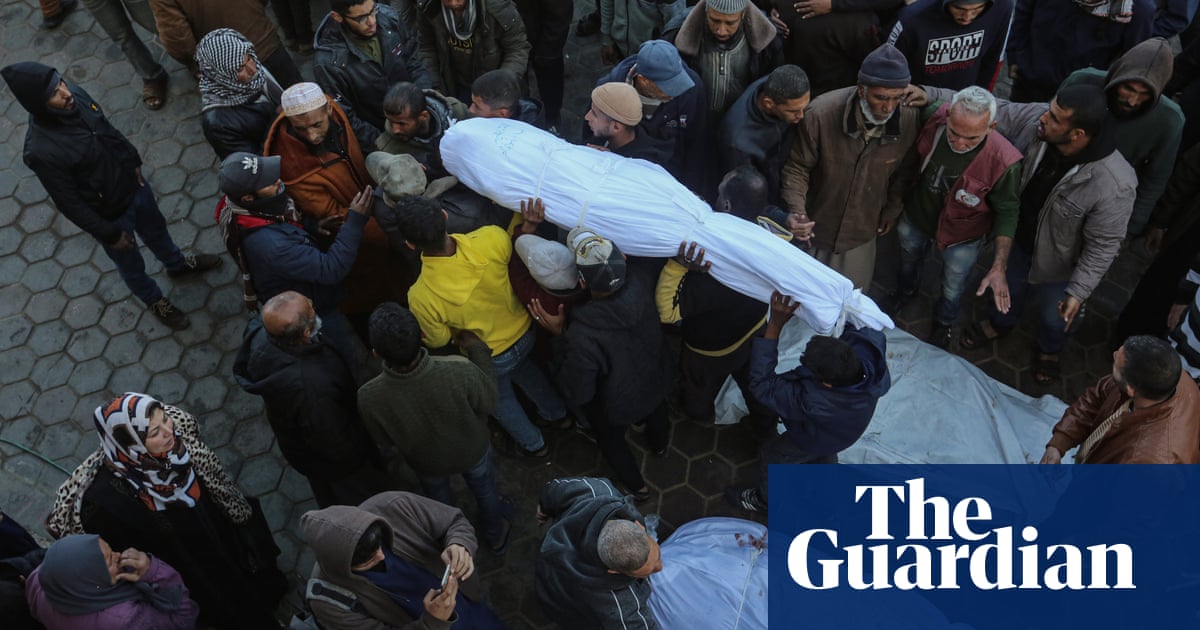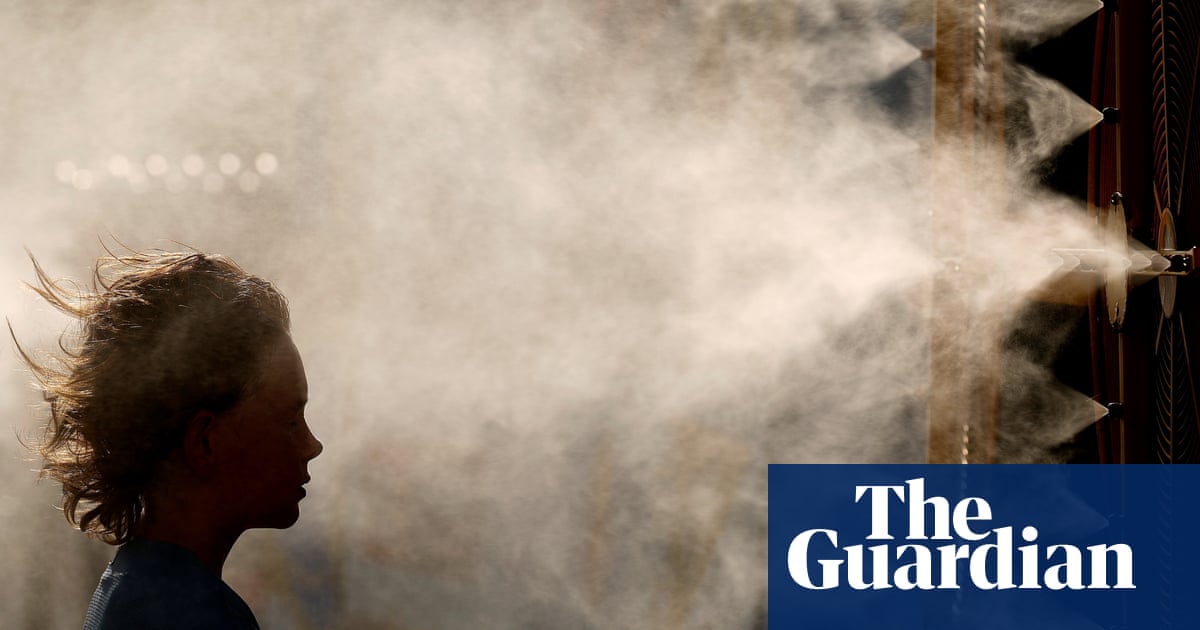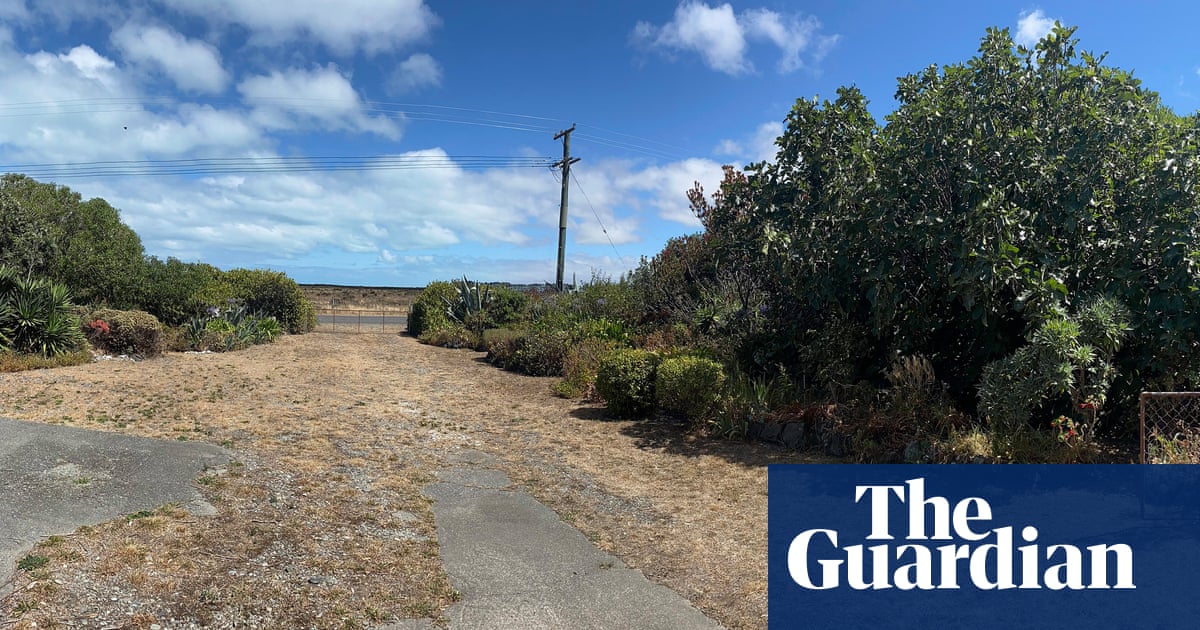Key events Show key events only Please turn on JavaScript to use this feature
Israel’s air force pounded Beirut’s southern suburb of Dahiyeh overnight, destroying dozens of buildings in several neighborhoods, Lebanon’s state-run National News Agency said Friday, AP reports.
The strikes on Dahiyeh — after a four-day lull during which no airstrikes were reported in the suburb — destroyed dozens of buildings and caused fires in the area. There was no immediate word on casualties.
Recently, Israel has intensified its airstrikes on the northeastern city of Baalbek and nearby villages, as well as different parts of southern Lebanon.
Welcome and summary
Hello and welcome to the Guardian’s continuing coverage of the crisis in the Middle East.
Benjamin Netanyahu reportedly told US envoys that Israel’s ability to counter threats to its security from Lebanon and return displaced people to the north were key elements of any ceasefire deal.
The comments came hours before Israel carried out airstrikes early on Friday on Beirut’s southern suburbs, Reuters witnesses said, the first strikes there in nearly a week.
“The main issue is … Israel’s ability and determination to enforce the agreement and thwart any threat to its security from Lebanon,” Netanyahu’s office cited him as telling two US envoys.
The envoys, Brett McGurk and Amos Hochstein, were in Israel on a new push to secure ceasefires in both Lebanon and Gaza. Lebanon’s prime minister on Wednesday expressed hope that a ceasefire deal was imminent.
-
Hochstein and McGurk, met the Israeli prime minister on Thursday to talk about a ceasefire proposal for Lebanon. The US secretary of state, Antony Blinken, said negotiators made “good progress” toward a deal. “We’re hopeful that we will see things transition in Lebanon in a not too distant future,” US defence secretary Lloyd Austin said.
-
Lebanon’s caretaker prime minister, Najib Mikati, who had expressed optimism of a speedy settlement “in hours or days” earlier on Thursday, said that Israel’s “ongoing escalation” in his country “does not inspire optimism”. Netanyahu’s office said the prime minister “made it clear that the main point is not this or that agreement on paper but Israel’s ability and determination to enforce the agreement and thwart any threat to its security from Lebanon, in a manner that will return our residents securely to their homes”.
-
Thursday marked a day when the most civilians in both Israel and Lebanon were killed since October 2023. The Lebanese health ministry said that Israeli attacks had killed 45 people in the previous 24 hours, amid bombing in the north-east Bekaa valley and infantry battles in the south. In one Bekaa village, eight people were killed from the same family. In northern Israel, seven people were killed by rocket fire from Lebanon, including four Thai agricultural workers.
-
The Israeli army’s evacuation call for several areas of south Lebanon on Thursday included a Palestinian refugee camp. Among the areas listed was Rashidieh camp, which houses thousands of Palestinian refugees. Israel issued its second evacuation order for the city of Baalbek and two surrounding villages in the Bekaa valley on Thursday afternoon, carrying out a series of airstrikes on the village of Durous a few hours later. The evacuation orders had prompted a mass exodus of residents from the city, which is home to a Unesco world heritage site.
-
Israeli attacks killed at least one child in Lebanon each day and injured 10 others, the UN children’s agency (Unicef) said. Citing the Lebanese health ministry, Unicef said 166 children have been killed since October 2023, while at least 1,168 have been injured. It awrned that the war in Lebanon is “inflicting severe physical wounds and deep emotional scars” on many of the country’s children. Six Lebanese health workers were killed and four wounded in Israeli strikes across south Lebanon on Thursday, the health ministry said in a statement.

.png) 2 months ago
25
2 months ago
25













































